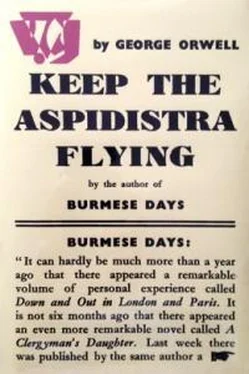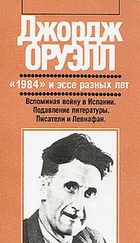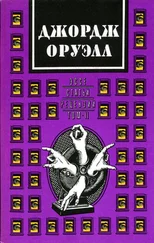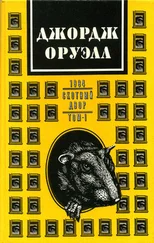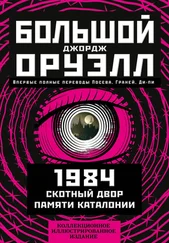Keep the Aspidistra Flying
George Orwell
Though I speak with the tongues of men and of angels, and have not money, I am become as a sounding brass, or a tinkling cymbal. And though I have the gift of prophecy, and understand all mysteries, and all knowledge; and though I have all faith, so that I could remove mountains, and have not money, I am nothing. And though I bestow all my goods to feed the poor, and though I give my body to be burned, and have not money, it profiteth me nothing. Money suffereth long, and is kind; money envieth not; money vaunteth not itself, is not puffed up, doth not behave unseemly, seeketh not her own, is not easily provoked, thinketh no evil; rejoiceth not in iniquity, but rejoiceth in the truth; beareth all things, believeth all things, hopeth all things, endureth all things…. And now abideth faith, hope, money, these three; but the greatest of these is money.
I Corinthians xiii (adapted)
The clock struck half past two. In the little office at the back of Mr McKechnie's bookshop, Gordon—Gordon Comstock, last member of the Comstock family, aged twenty–nine and rather moth–eaten already—lounged across the table, pushing a four–penny packet of Player's Weights open and shut with his thumb.
The ding–dong of another, remoter clock—from the Prince of Wales, the other side of the street—rippled the stagnant air. Gordon made an effort, sat upright, and stowed his packet of cigarettes away in his inside pocket. He was perishing for a smoke. However, there were only four cigarettes left. Today was Wednesday and he had no money coming to him till Friday. It would be too bloody to be without tobacco tonight as well as all tomorrow.
Bored in advance by tomorrow's tobaccoless hours, he got up and moved towards the door—a small frail figure, with delicate bones and fretful movements. His coat was out at elbow in the right sleeve and its middle button was missing; his ready–made flannel trousers were stained and shapeless. Even from above you could see that his shoes needed resoling.
The money clinked in his trouser pocket as he got up. He knew the precise sum that was there. Fivepence halfpenny—twopence halfpenny and a Joey. He paused, took out the miserable little threepenny–bit, and looked at it. Beastly, useless thing! And bloody fool to have taken it! It had happened yesterday, when he was buying cigarettes. 'Don't mind a threepenny–bit, do you, sir?' the little bitch of a shop–girl had chirped. And of course he had let her give it him. 'Oh no, not at all!' he had said—fool, bloody fool!
His heart sickened to think that he had only fivepence halfpenny in the world, threepence of which couldn't even be spent. Because how can you buy anything with a threepenny–bit? It isn't a coin, it's the answer to a riddle. You look such a fool when you take it out of your pocket, unless it's in among a whole handful of other coins. 'How much?' you say. 'Threepence,' the shop–girl says. And then you feel all round your pocket and fish out that absurd little thing, all by itself, sticking on the end of your finger like a tiddley–wink. The shop–girl sniffs. She spots immediately that it's your last threepence in the world. You see her glance quickly at it—she's wondering whether there's a piece of Christmas pudding still sticking to it. And you stalk out with your nose in the air, and can't ever go to that shop again. No! We won't spend our Joey. Twopence halfpenny left—twopence halfpenny to last till Friday.
This was the lonely after–dinner hour, when few or no customers were to be expected. He was alone with seven thousand books. The small dark room, smelling of dust and decayed paper, that gave on the office, was filled to the brim with books, mostly aged and unsaleable. On the top shelves near the ceiling the quarto volumes of extinct encyclopedias slumbered on their sides in piles like the tiered coffins in common graves. Gordon pushed aside the blue, dust–sodden curtains that served as a doorway to the next room. This, better lighted than the other, contained the lending library. It was one of those 'twopenny no–deposit' libraries beloved of book–pinchers. No books in it except novels, of course. And WHAT novels! But that too was a matter of course.
Eight hundred strong, the novels lined the room on three sides ceiling–high, row upon row of gaudy oblong backs, as though the walls had been built of many–coloured bricks laid upright. They were arranged alphabetically. Arlen, Burroughs, Deeping, Dell, Frankau, Galsworthy, Gibbs, Priestley, Sapper, Walpole. Gordon eyed them with inert hatred. At this moment he hated all books, and novels most of all. Horrible to think of all that soggy, half– baked trash massed together in one place. Pudding, suet pudding. Eight hundred slabs of pudding, walling him in—a vault of puddingstone. The thought was oppressive. He moved on through the open doorway into the front part of the shop. In doing so, he smoothed his hair. It was an habitual movement. After all, there might be girls outside the glass door. Gordon was not impressive to look at. He was just five feet seven inches high, and because his hair was usually too long he gave the impression that his head was a little too big for his body. He was never quite unconscious of his small stature. When he knew that anyone was looking at him he carried himself very upright, throwing a chest, with a you–be– damned air which occasionally deceived simple people.
However, there was nobody outside. The front room, unlike the rest of the shop, was smart and expensive–looking, and it contained about two thousand books, exclusive of those in the window. On the right there was a glass showcase in which children's books were kept. Gordon averted his eyes from a beastly Rackhamesque dust– jacket; elvish children tripping Wendily through a bluebell glade. He gazed out through the glass door. A foul day, and the wind rising. The sky was leaden, the cobbles of the street were slimy. It was St Andrew's day, the thirtieth of November. McKechnie's stood on a corner, on a sort of shapeless square where four streets converged. To the left, just within sight from the door, stood a great elm–tree, leafless now, its multitudinous twigs making sepia– coloured lace against the sky. Opposite, next to the Prince of Wales, were tall hoardings covered with ads for patent foods and patent medicines. A gallery of monstrous doll–faces—pink vacuous faces, full of goofy optimism. Q.T. Sauce, Truweet Breakfast Crisps ('Kiddies clamour for their Breakfast Crisps'), Kangaroo Burgundy, Vitamalt Chocolate, Bovex. Of them all, the Bovex one oppressed Gordon the most. A spectacled rat–faced clerk, with patent–leather hair, sitting at a cafe table grinning over a white mug of Bovex. 'Corner Table enjoys his meal with Bovex', the legend ran.
Gordon shortened the focus of his eyes. From the dust–dulled pane the reflection of his own face looked back at him. Not a good face. Not thirty yet, but moth–eaten already. Very pale, with bitter, ineradicable lines. What people call a 'good' forehead— high, that is—but a small pointed chin, so that the face as a whole was pear–shaped rather than oval. Hair mouse–coloured and unkempt, mouth unamiable, eyes hazel inclining to green. He lengthened the focus of his eyes again. He hated mirrors nowadays. Outside, all was bleak and wintry. A tram, like a raucous swan of steel, glided groaning over the cobbles, and in its wake the wind swept a debris of trampled leaves. The twigs of the elm–tree were swirling, straining eastward. The poster that advertised Q.T. Sauce was torn at the edge; a ribbon of paper fluttered fitfully like a tiny pennant. In the side street too, to the right, the naked poplars that lined the pavement bowed sharply as the wind caught them. A nasty raw wind. There was a threatening note in it as it swept over; the first growl of winter's anger. Two lines of a poem struggled for birth in Gordon's mind:
Читать дальше
